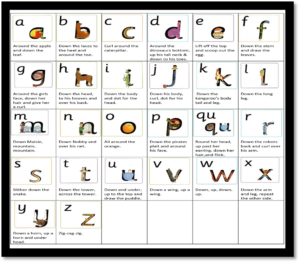Writing
Intent
At Godolphin Primary School, we recognise the critical importance of writing as a tool for communication, expression, and empowerment. Our intent is to cultivate a love for writing across all year groups and ensure that every child develops the skills needed to become competent, confident, and purposeful writers.
Through our curriculum, we aim to:
- Develop creativity and imagination by inspiring pupils to produce engaging and original writing that reflects their own voice and perspective. We nurture curious learners who enjoy exploring language, experimenting with form, and asking questions about the world around them through their writing.
- Ensure a strong foundation in the technical aspects of writing, including grammar, punctuation, and spelling, as well as the structure of narrative and non-fiction texts. We believe these essential skills support fluency and allow pupils to write with confidence and independence.
- Foster critical thinking, encouraging pupils to reflect on the choices they make as writers and to consider how their words impact the reader. Through self-assessment and peer feedback, children are supported to take ownership of their progress and grow as thoughtful, reflective writers.
- Promote inclusivity by ensuring all children, regardless of background or ability, can succeed in their writing. In line with our value of being kind, we create a safe and supportive environment where every child feels empowered to express themselves.
- Encourage real-world connections by giving writing a clear purpose and audience. We help pupils become connected writers, using their skills to engage with real issues and communicate effectively beyond the classroom—through letters, reports, creative projects, and cross-curricular tasks.
Implementation
To achieve this intent, we have designed a comprehensive, well-sequenced writing curriculum. This includes:
- A thematic approach using high-quality texts (including Literacy Tree, Literacy Shed, and Hamilton Brookes) linked to cross-curricular topics, helping children make meaningful connections in their learning;
- Systematic and progressive instruction with clearly defined year group expectations, using shared, guided, and independent writing strategies;
- Formative assessment, peer and self-assessment, and regular teacher feedback to track progress and support improvement;
- Writing opportunities embedded across subjects such as History, Science, and Art to enhance relevance and engagement;
- Ongoing professional development for staff, supported by our membership in the Schools Literacy Network;
- Parental involvement through home learning and writing celebrations like the 500 Words competition, reinforcing our connected community approach.
At Godolphin, we believe that writing unlocks opportunities, both in school and beyond. By embedding our core values—Kind, Curious, Connected—throughout our writing curriculum, we prepare our pupils to become confident communicators who can express themselves with clarity, empathy, and creativity.
Spellings
EYFS and Y1 follow the RWInc spelling programme for spelling. From Year 2, classes follow the progressive spelling scheme Spelling Shed. Through exploring spelling patterns and rules, we aim to create confident and proficient spellers using a discrete teaching approach underpinned by phonics.
Children are also taught to:
- Spell accurately and identify reasons for misspellings.
- Proof-read their spellings.
- Recognise and use word origins, families, and roots to build their skills.
- Use dictionaries and thesauruses.
Handwriting
Early letter formation is taught through Read Write Inc. lessons in EYFS. Daily lessons offer the opportunity for our pupils to practise forming letters whilst also learning key rules and rhymes to ensure correct letter formation is established. The children will also practise letter formation through continuous provision. Read Write Inc. letter formation rhymes that we teach the children are shown above.
In Year 1 up to Year 6, the children have regular handwriting lessons following the Morrells Scheme. In Year 1, the children build upon the letter formation that they have learnt in EYFS. From Year 2 to Year 6, the children learn to join their handwriting.
The impact of our writing programme is reflected in the following outcomes:
- Pupil Engagement and Enthusiasm: Observations and pupil questionnaires indicate a high level of enjoyment and motivation towards writing activities, with pupils looking forward to writing tasks and expressing pride in their work.
- Strong Progress and Attainment: Our data shows that the majority of pupils make at least good progress in writing, with a significant number achieving age-related expectations by the end of Key Stage 2, evidenced by internal assessments and external testing.
- Diverse and High-Quality Writing: A scrutiny of pupils’ writing portfolios demonstrates a variety of styles and genres, with many pupils producing work that is imaginative, cohesive, and technically proficient.
- Skills Transferability: Pupils are able to transfer their writing skills across subjects and demonstrate clarity and creativity when presenting their ideas, both in written form and verbally.
- Increased Confidence: Regular opportunities for sharing work and receiving positive feedback contribute to pupils’ self-esteem, enabling them to take risks in their writing and develop resilience.
In conclusion, our carefully structured approach to writing education ensures that all pupils are equipped with the skills and passion necessary for effective communication and creative expression, fulfilling our intent and leading to remarkable impact across our school community.

